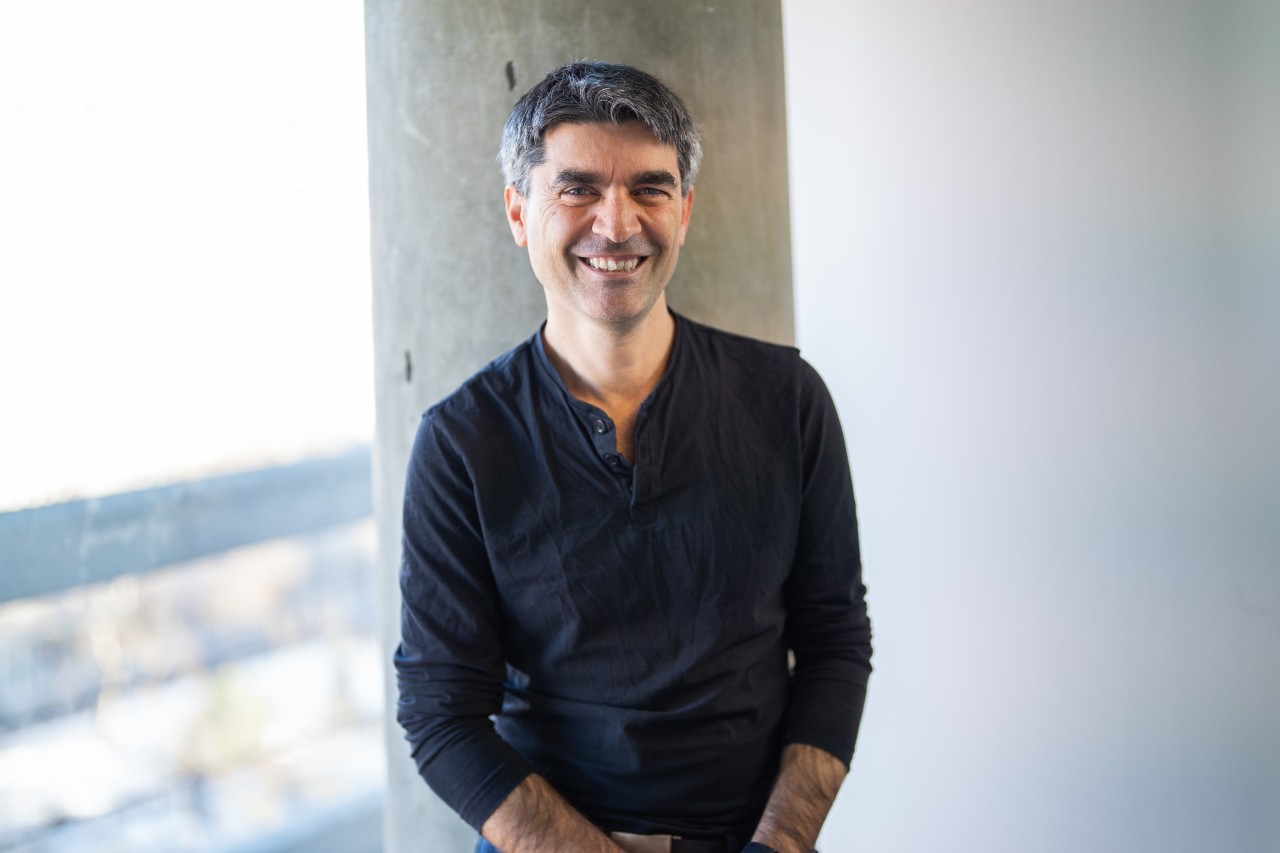Daniele Oriti - Ludwig-Maximilians-Universität
1. Briefly describe your current position/project, research focus, and your role within MCQST.
I am currently (and until the end of 2023) a senior researcher and Heisenberg group leader at the Arnold Sommerfeld Center for Theoretical Physics, LMU, where I direct the research group "Quantum Gravity and Foundations of Physics". In 2024, I will move to a faculty position at the "Complutense" University in Madrid.
I am also a core member of MCQST, part of its RU-G "Explorative Directions". Indeed, in my work I pursue quite a few explorative directions.
My main research area is quantum gravity, i.e. the search for a more fundamental theory of space, time and matter (and gravity). I explore both its mathematical foundations, in a number of related approaches, notably group field theory, lattice quantum gravity, loop quantum gravity, non-commutative geometry, and its physical implications with particular attention to emergent cosmological dynamics treating the universe as a peculiar quantum many-body system and cosmology as its effective hydrodynamic description, and the interface with quantum information, thus the possible information-theoretic structure of spacetime itself.
I am interested as well in the foundations of physics, especially the foundations of quantum mechanics, and more general issues in the philosophy of science.
 Ⓒ Christoph Hohmann / MCQST
Ⓒ Christoph Hohmann / MCQST 2. This year you created the series " Dialogues on the Foundations" as part of the CAS working group "Foundations of Physics", and supported by MCQST. What was your motivation behind this initiative? Why do you think the series was so successful?
To be honest, the first motivation has been that I enjoy chatting about physics and philosophy, and discussing current ideas and new research directions with colleagues and friends, and that I learn a lot from it.
Then, I am in fact convinced that doing this in a way that is open to the public is the best form of outreach. It gives a more faithful representation of what scientists actually do, which is, indeed, to a large extent discussing and arguing, questioning each other, raising objections or criticisms, defending rationally a given perspective, sharing their enthusiasm for a hypothesis and their skepticism toward another, exposing their doubts and their confusion as well as their insights.
I also think that an informal setting like a chat among colleagues can be attractive, since it avoids any kind of posturing as the wise men or the sages who impart the truth onto the others, the modern priests onto the silent believers. Therefore, I find this more in line with the true spirit of science, built on organized critical and rational exploration, and simply the collective attempt to find out more about the world, as a never ending journey.
I find this more in line with the true spirit of science, built on organized critical and rational exploration, and simply the collective attempt to find out more about the world, as a never ending journey.
3. What inspired you to pursue a career in science / in your discipline?
My first love (in the intellectual domain) was in fact philosophy, all branches of it, but especially those having to do with the nature of space and time, causality, the origin of the cosmos, the role of observers, etc.
Then I got convinced that the best way we have to make progress in answering (or at least shaping and deepening) those questions was either to do science, and theoretical physics in particular, or to pursue a philosophy well entrenched with scientific developments. This I decided to do just that, i.e. to be a theoretical physicist paying a serious attention to philosophical aspects of my work. And, in the same spirit of "exploring and shaking the foundations", I chose to focus on quantum gravity, foundations of quantum mechanics and cosmology.
Whether the models of quantum gravity I work on are going to give us the "correct" understanding of these foundations remains to be seen, of course, and we have to wait for more theoretical developments as well as observational tests. However, I can say for sure the following. When I struggle to establish a consistent mathematical description of the universe as a quantum fluid made out of entangled non-spatio-temporal building blocks, from which a cosmological dynamics emerges together with the usual notions of space and time to give us a testable picture of what happened at the big bang, well, I feel I am fulfilling the aspirations of my younger self.
Despite the many difficulties, moments of despair and inevitable challenges of any research work, the intellectual journey has been (and still is) deeply satisfying and, more often than not, quite exciting. That is, I still find all this stuff super-cool.
Follow the "Dialogues on the Foundations" series on YouTube.